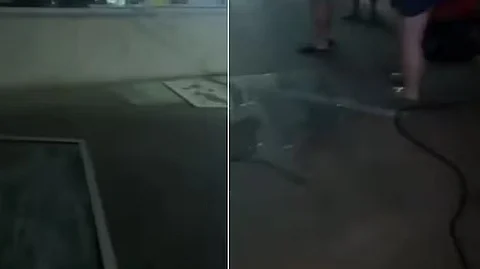

The US Embassy in Tel Aviv was temporarily closed on Monday following minor damage from an Iranian missile strike—the first direct threat to a US diplomatic mission since hostilities between Israel and Iran escalated last week. Though no injuries were reported among embassy staff, videos circulating on social media showed shattered windows and structural damage caused by shockwaves from nearby explosions.
US Ambassador to Israel Mike Huckabee confirmed the closure on social media, stating, “Our US Embassy in Israel & Consulate will officially remain closed today as shelter in place still in effect. Some minor damage from concussions of Iranian missile hits near Embassy Branch in Tel Aviv but no injuries to US personnel.” Embassy staff were instructed to remain in secure locations, and emergency procedures were activated as a precautionary measure.
The missile strike was part of a larger Iranian assault on Israeli cities, launched in retaliation for recent Israeli airstrikes on military and nuclear facilities inside Iran. According to Israeli emergency services, Monday’s attacks killed at least five people and injured 92 others. The rising death toll and expanding scope of the conflict have fueled fears of a wider regional war.
In response, US President Donald Trump urged both nations to pursue diplomatic avenues but admitted that “sometimes they have to fight it out” before diplomacy can take hold. While US forces helped intercept incoming Iranian missiles, officials emphasized that the US is not directly participating in Israel’s offensive operations.
The embassy closure highlights the growing vulnerability of foreign missions as the Israel-Iran conflict intensifies, raising urgent concerns over the safety of diplomatic staff and the potential for global ramifications.